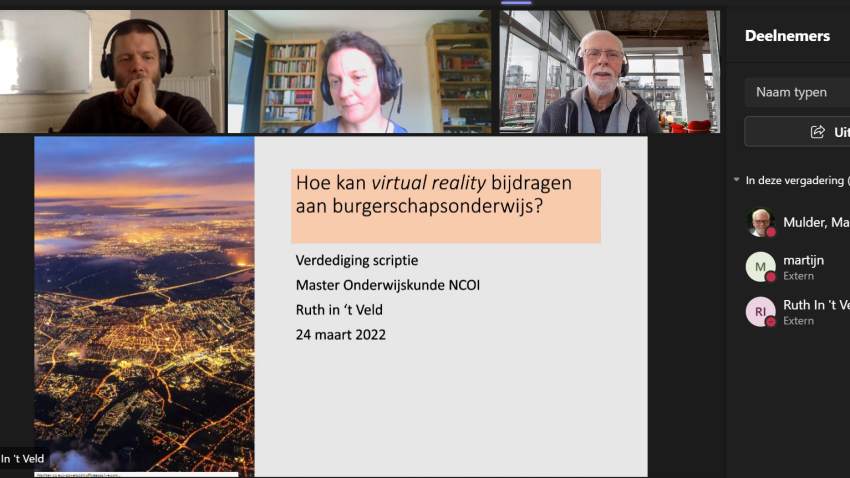Today, on March 24, Ruth in ‘t Veld successfully defended her thesis for the completion of the Master of Education. The theme of the thesis was on the application of virtual reality in citizenship education within a college of vocational education and training.

The study was conducted with students from two levels of vocational education: level 2 and level 4. The review of resesarch for this thesis was quite extensive, and the empirical foundation quite large. A total of 11 classes were taught 3 lessons with a VR-component. The lessons were about the circular economy, a synagogue, and the Anne Frank house. Expectations of students regarding citizenship education were studied, as well as their perceptions of the use of VR for citizenship education. An attempt was made to also observe the discussions in the classess after the VR experience, but not all teachers enabled or stimulated discussion. Assignments were part of the data collection plan, but these were not very informative. Reactions of many students were too limited. An interesting finding is that students confirm that the VR application has a motivating effect, themes are more accessible that way, and sources of information can be more critically assessed. However, the students do not draw lines between the general information they got and their own (e.g. democratic) behavior. Also, self reflection is not stimulated very much. Some were able to change perspectives to others, but this was not visible in all discussions. At the end of the day, students see the added value of VR; however, for the realisation of its full potential a lot has still to be done, also at the practical level. Teachers need to be prepared, headsets need to be available in the location of the classes (which in a college with many locations is a challenge), the VR experiences need to be prepared for the start of the classes, the headsets need to work properly, chanrged batteries need to be available, and the connection with the internet with the host (if applicable) need to be established (which also leads to the question of the ownership and use of the data). For full-blown application of VR in vocational education and training colleges, the colleges need an articulated vision on the implementation of this digital technology.
Congratulations Ruth in ‘t Veld with this interesting piece of research, and thanks Dr. Martijn van Schaik for the assessment of the thesis.
